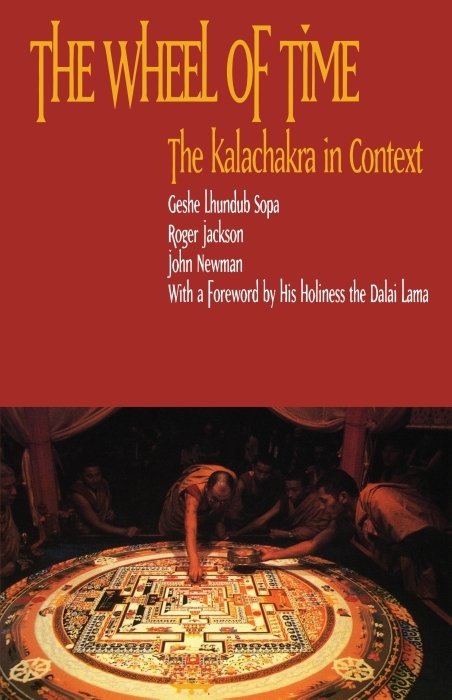The Kalachakra, or "Wheel of Time," is one of the most profound and sublime of the Buddhist tantric systems. It is an intricate interweaving of astrology, eschatology, physiology, and yoga into a meditational path system that embraces the entire material universe and leads to complete, perfect enlightenment. The Kalachakra, with its special connection to the land of Shambhala and a future golden age of Dharma, has a special appeal for people of all levels of learning and practice. Initiation into its practices traditionally have been large public events, especially when granted by the Dalai Lama.
Initiation into the Kalachakra Tantra has been given with increasing frequency in recent years, but information on this complex system and practice remains sparse. The Wheel of Time attempts in part to fill the gap. The book opens with a Foreword by His Holiness the Fourteenth Dalai Lama. Then the five articles discuss, respectively, the Buddhist background, history, initiation rites, generation stage sadhana, and completion stage practices of the Kalachakra Tantra.




